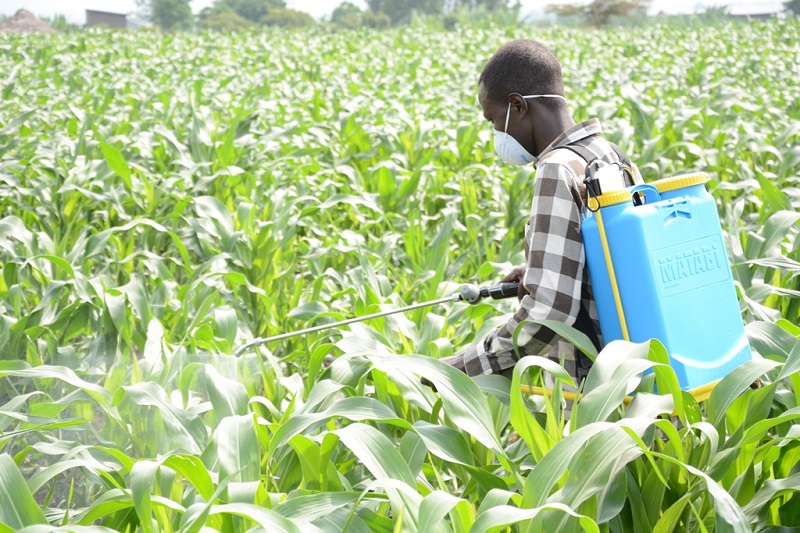In February an armyworm outbreak led to the significant damage of maize fields across Ethiopia. The Start Fund enabled a targeted rapid response to meet farmers’ immediate needs. Dorcas gave farmers appropriate chemicals to control the infestation and guidance on how to protect their maize from future outbreaks.
What happened?
The armyworm was first reported in Yeki woreda, in the South West of Ethiopia towards the end of February. By June, the infestation had spread to other regions. This posed a problem as a number of the districts affected relied heavily on maize production for their income and were severely affected by the outbreak.
Dorcas reported that 97% of the households that had the infestation relied on maize as their primary or only source of income. In addition, the frequency of droughts in the areas affected meant that farmers did not have a full harvest in the previous years, increasing the community’s vulnerability
Wako Arqa, a local farmer explained how the effects of the pest had the potential to cripple his harvest. He said that the armyworm “consumes all parts of the crop, but the roots” which produces poor crops. Wako and many other farmers in the region use the maize crops to feeds his animals and to sell in order to feed his family.
“Maize is not only for my life, but also a feed for animals”
- Wako Arqa, local farmer
The pattern of the armyworm and nature of how it feeds indicated that it also damages the reproductive organs of the plant, meaning that this pest is not only cutting through crops but is also destroying livelihoods.
What was the Start Fund’s role in preventing this crisis?
The Start Fund chose to target areas that were vulnerable– the Boricha and Hawassa Zuria districts of the Sidama Zone. These districts had been hotspots for droughts in the past which meant that families there had already suffered from food insecurity and unreliable household incomes. A drought is also the perfect environment for armyworms to thrive and spread
Dorcas Aid implemented a rapid response project in these two districts to mitigate the devastating effects of the infestation. Through the Start Fund, Dorcas distributed chemicals and worked to raise awareness on how to use chemicals to tackle the spread of the armyworms among targeted households.
An in-depth evaluation found that there was a lack of awareness by the local farmers on how to deal with armyworm. When the infestation was first spotted, the majority of farmers did not react at all; while 7.3% and 2% respectively said they began handpicking and bought chemicals to spray on their maize. This told Dorcas that a key part of the response needed was an awareness programme or incentive to help educate the local community on how to deal with future infestations.
The table below shows how the response was able to significantly reduce the levels of infestation within the targeted households.
|
Degree of infestation before the support received |
Current degree of infestation |
||||
|
Infestation |
No of households |
% |
Infestation |
No of households |
% |
|
0-25% |
19 |
12.7 |
0-25% |
145 |
95.3 |
|
26-50% |
113 |
75.3 |
26-50% |
7 |
4.70 |
|
51-75% |
16 |
10.7 |
|
|
|
|
76-100% |
2 |
1.3 |
|
|
|
|
Total |
150 |
100 |
Total |
150 |
100 |
Was the response a success?
Infestation was reduced from 26-50% to 0-25% in the majority of the maize fields.
The timeliness and efficiency of the Start Fund response was commended by locals. Funding arrived before any lasting damage could be done, and households did not face a significant drop in their maize production which meant their incomes remained intact. Local people also reported that, without the material support and information that they received from Dorcas, eliminating the infestation would not have been possible. The awareness-raising aspect of the response cultivated a clear understanding of effective armyworm prevention mechanisms.
This response was particularly important for local farmers who said they did not receive any support from other NGOs in relation to the armyworm infestation. The Start Fund enabled Dorcas to respond early, quickly, and focused on building local resilience for future emergencies of this kind.

